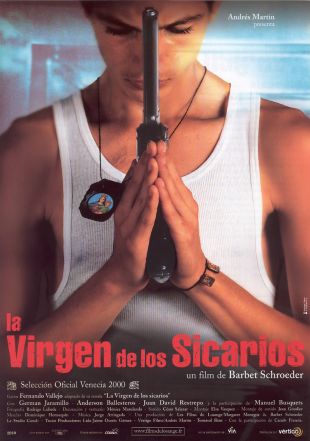
This audacious meditation on death, violence, godlessness, and the breakdown of social order in the face of guerilla capitalism has the good grace to lace its incredibly heavy themes with wit, comedy, intellectual passion, and smoldering sensuality. After a string of lackluster Hollywood films, director Barbet Schroeder returns to form with this layered, visually arresting Spanish-language feature in which the voice of reason and moral accountability is an atheistic, middle-aged writer with a taste for wiry, beautiful young boys and a chasm of regret a mile wide running through his soul. Colombian stage actor German Jaramillo brings an air of tragic aestheticism and knowing contradiction to the difficult role of expatriate writer Fernando Vallejo; his transformation from self-pitying observer to thoughtful, yet active participant in his homeland's struggles parallels the audience's journey from titillation to emotional investment and, ultimately, spiritual devastation. The irony and ambiguity of La Virgen de los Sicarios, however, permeates far more than just its indelible central character. This is a film that forces us to indulge in our taste for humorous, cartoon violence, then chokes the laughs before they've left our throats. It also forces us to examine our complicity in the enjoyment of cheap beauty, turning its romantic themes into a meditation on the intersection of sex and money. Anderson Ballesteros and Juan David Restrepo, playing parts very close to their actual lives on the streets of Medellín, bring a primal mixture of beauty, affection, and savagery to their roles as Vallejo's young hustler friends; the apparent ease with which their characters navigate a world of casual drive-bys and constant death suggests that the term "amorality" loses its meaning when one is raised in a world where human life has no value. The film's true star, however, is Medellín itself -- a city whose shocking beauty, sickening squalor, and frequent sacrilege are captured in crisp digital video and accented by Schroeder's hallucinatory dream sequences. Like Before Night Falls -- another film whose gay themes are secondary to its political and humanistic concerns -- La Virgen de los Sicarios uses the figure of an outsider artist to map out the darkest corners of our global society in all its beauty and tragic desolation.
